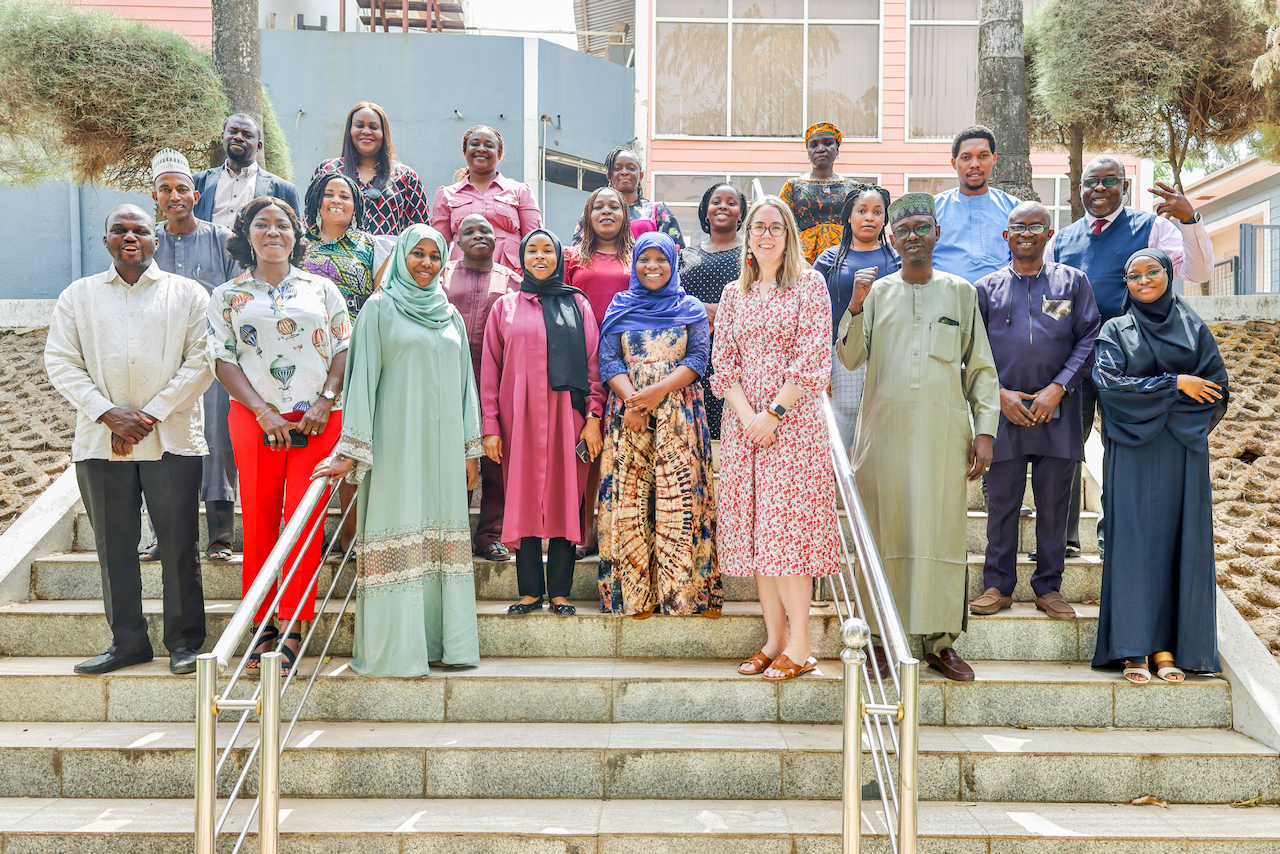IMPACT Offers Hands-On Training To Public Health Professionals In Nigeria
Improving Public Health Management for Action, or IMPACT, was a program launched in 2016 by U.S. CDC to address the critical shortage of trained public health managers in low-to-middle income countries. Countries with IMPACT programs provide public health professionals critical, hands-on experience with a full range of public health-related proficiencies that help them better manage science, research and administration to keep their fellow citizens, and the world, safe from emerging diseases.
In collaboration with IANPHI and U.S. CDC, IMPACT implemented its service-based learning model in Nigeria starting in 2019, with a second cohort starting in 2022. Staff from Nigeria Centre for Disease Control and partner organizations received training on program planning and management, communication, community partnership development, analysis and assessment, organizational leadership and systems awareness, basic public health sciences and practices, budget and financial planning, and emergency preparedness and response. IMPACT Nigeria also trained a cohort of in-country trainers to ensure the program's benefits can be shared among Nigerian public health professionals long after the original IMPACT sessions are completed.

IMPACT Cohort 2 poses for a group photo in Abuja, Nigeria in February 2023.
Dr. Muntari Hassan, deputy director of disease surveillance and epidemiology at Nigeria CDC and part of the recent IMPACT cohort, participated with the aim of improving his ability to lead his team, and its ability to deliver practical public health action. He says IMPACT's hands-on, interactive methodology sets it apart from other professional development courses he's taken.
"It's not just a lecture where you sit down like a student and have to remember," he says. "[During IMPACT] there are demonstrations, guiding documentations, and you get to ask a lot of questions."
Approximately one-quarter of IMPACT's work takes place in a classroom setting. Fellows do most of their training at their field site where supervisors and mentors oversee fellows conducting real-world projects. IMPACT's core activities include designing a public health program or project, conducting needs assessments, managing field investigations, and evaluating existing programs.
Additionally, IMPACT fellows complete five professional developmental activities including providing written and verbal briefs, organizing and presenting at meetings, budgeting, consensus building, and communicating scientific prevention and risk concepts.
Mustapha Jamda Abubakar, professor of public health and community medicine and provost of the College of Health Sciences at the University of Abuja, says IMPACT's budgeting and financial management modules filled a gap in his experience that paid off quickly for him when he successfully defended his university budget. He says the most important skill developed through IMPACT is communication.
"I think the most important challenge we face in the health sector is communication," he says. "I'm not sure [public health professionals] effectively communicate with our superiors, funders, students or the community, so it's not surprising we don't get the results we expect."
Adebiyi Oluwadara, a medical officer at National Primary Health Care Development Agency, says IMPACT helped her put better decision-making and consensus-building principles into practice, helping her understand team decision-making techniques and processes that encourage participation and keep disagreements from becoming personal.
"It's team building, and it's very insightful," says Oluwadara.
Abubakar concurs, adding that IMPACT redefined his understand of leadership.
"I've attended leadership programs before and I wasn't sure what to expect," Abubakar says. "IMPACT differentiated leadership from management."
The program has been so valued and successful that Nigeria CDC plans to train a third cohort to ensure that fellowship graduates learn how to train others to maintain and perpetuate the program.